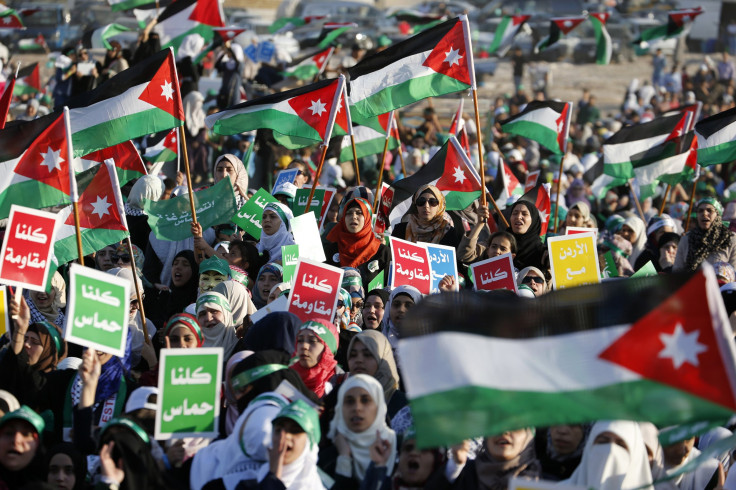Muslim Brotherhood Arrest: Zaki Bani Irsheid Detained In Jordan For Criticizing UAE’s Terrorist Designation

A senior member of the Muslim Brotherhood was arrested in Jordan on Thursday, the third such high-profile arrest of a Brotherhood figure in recent months, according to the Associated Press. Security forces detained Zaki Bani Irsheid, the Brotherhood’s deputy secretary-general, for criticizing the United Arab Emirates in an op-ed piece for labeling the Brotherhood a terrorist group.
"Security services arrested the deputy comptroller general of the Muslim Brotherhood following statements he made against the United Arab Emirates and its regulation of terrorist organizations, which include the Muslim Brotherhood,” a security source told the Middle East Monitor. In the op-ed piece, Irsheid, one of the Brotherhood’s most prominent leaders in Jordan, described the UAE as “the first sponsor of terrorism,” according to the Monitor.
Irsheid may face charges of “souring relations with a friendly country,” meaning the U.S., the state prosecutor told the AP. The U.S., Jordan and the UAE have established an alliance against the Islamic State, an extremist Sunni group that has taken control of parts of Iraq, Syria and Eastern Libya.
Jordan’s recent clampdown on opposition leaders has led to several Brotherhood members being arrested. The Brotherhood is the kingdom’s most influential opposition group.
Another high-profile Brotherhood member was arrested in Egypt on Thursday. Mohammed Ali Bishr, who played an integral role in talks between the Egyptian government and the Islamist group, was detained for encouraging demonstrations.
The Egyptian government has jailed thousands of Brotherhood supporters since President Abdel Fattah el-Sisi gained power in 2013 after the ousting of then-President Mohammed Morsi. Bishr’s arrest followed news that five students arrested in January for damaging part of the engineering department at Al-Azhar University in Cairo will be charged with rioting and tried in a military court. The government in October began allowing the military to try civilians who vandalize state facilities.
© Copyright IBTimes 2024. All rights reserved.












